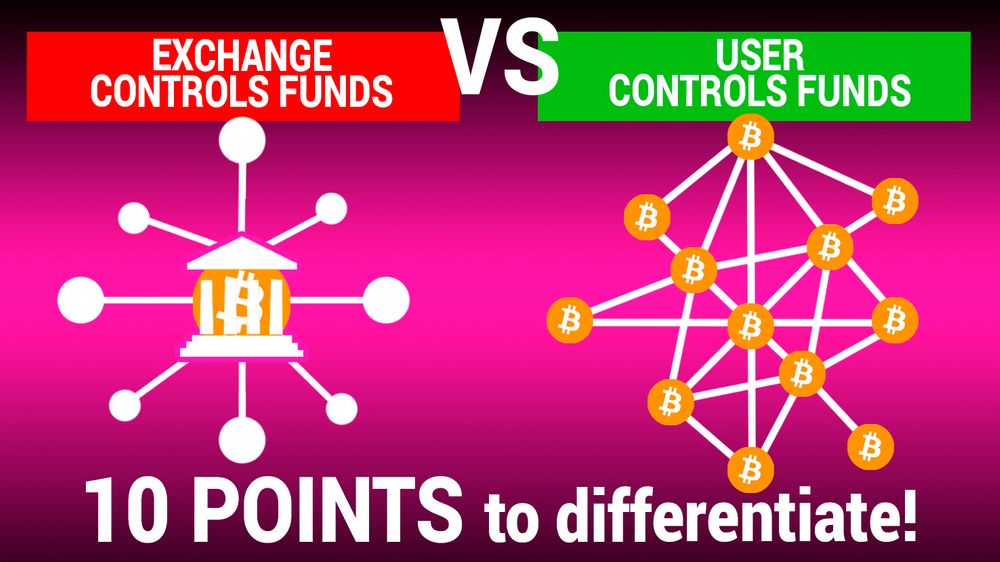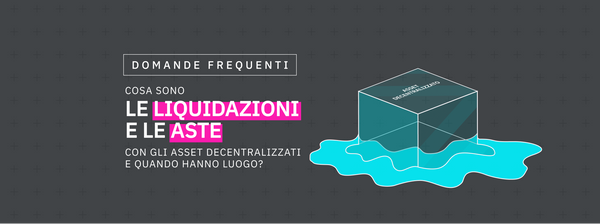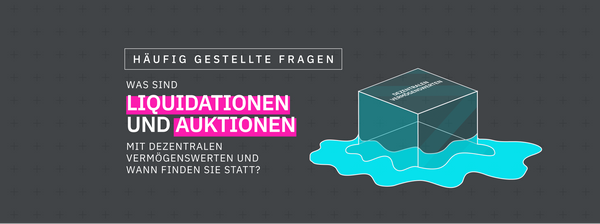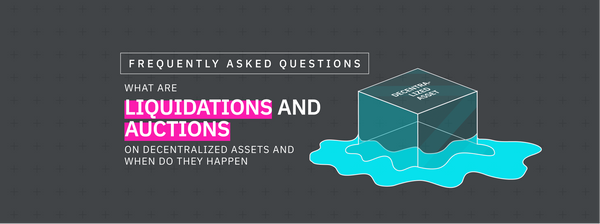DeFiChain DEX: a 100% decentralized exchange
The concept of decentralized Exchanges is becoming increasingly popular, and more and more funds are moving from centralized Exchanges (CEX) to the decentralized Exchanges (DEX).
But are the "decentralized exchanges" we see in the media really completely decentralized exchanges?
The truth lies, as so often, somewhere in between.
In this article 10 criteria how to evaluate a decentralized exchange objectively, and how the DeFiChain DEX performs under these aspects.

CEX, DEX or Non-Custodial?
As you will see from the 10 criteria, a distinction just between centralized and decentralized exchange is not sufficient.
There are many supposedly decentralized Exchanges, where you control your Private Key yourself - but many other important points of a real decentralized exchange are not given. I call such exchanges "Non-Custodial" Exchanges.
Let's start with the 10 criteria:
1. Private Key
CEX: With a centralized Exchange, you never see a private key. The Exchange manages it - as well as all your stored money - for you.
Non-Custodial: With a non-custodial exchange, you remain in control of your private key. Your coins are in your control, but it's also your responsibility to handle your private key carefully and keep it safe.
DEX: Here you also have full control over your private key and have to take care of it yourself.
The DeFiChain DEX will allow full control over your private key.
2. Geoblocking
CEX: Just about every major exchange, including Binance, Coinbase, Kraken, etc., uses geoblocking. This simply has to do with the fact that they have to comply with regulations and rules of the countries where they are located.
Non-Custodial: There are Non-Custodial Exchanges that do not use Geoblocking, but most of the highly praised and popular ones like the "Binance DEX" do use Geoblocking.
DEX: Of course, a true decentralized exchange never uses any kind geoblocking at all.
The DeFiChain DEX will not, and by design cannot, ever use any kind of Geoblocking.

3. Know-Your-Customer
CEX: Every serious central exchange requires that its customers go through a "Know your customer", or KYC process. Again, this has simply to do with government regulations and rules.
Non-Custodial: The vast majority of Non-Custodial Exchanges require from their clients, if not a complete verification including identification etc., at least their email address, the creation of an account with password, etc.
DEX: With a real decentralized exchange, you don't have to go through a KYC process or reveal any private information about yourself.
Since the DeFiChain DEX is completely decentralized and independent, there is no centralized party that could require KYC - DeFiChain's DEX will be fully usable without revealing any kind of private information.
4. Infrastructure:
CEX: A website, a company, a central interface on which everything depends. If the website goes down or the company goes bankrupt, the exchange is no longer usable.
Non-Custodial: Even with non-custodial exchanges such as the large "Binance DEX", there is often a central interface (website) on which everything depends.
DEX: With a true decentralized exchange there is no central interface at all. You have your own desktop app or can even use the Exchanges via terminal if necessary.
The DeFiChain DEX will allow for independent access on user-side alone, no central interface.
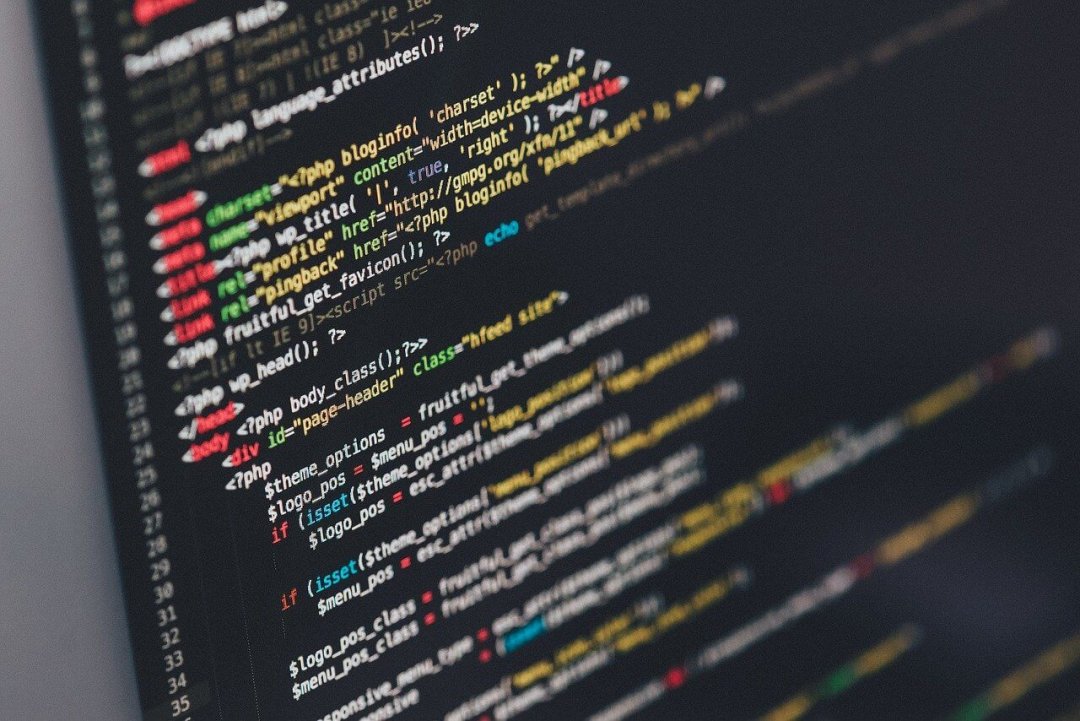
5. Code
CEX: Virtually every central exchange has a private code that is not publicly accessible.
Non-Custodial: There are Non-Custodial Exchanges that have a public code, but most are actually private.
DEX: Every real DEX of course has a completely open source code.
DeFiChain's DEX will be completely open-source.
6. Order Matching
CEX: Order matching at each central exchange is of course centralized.
Non-Custodial: Again, order matching is mostly centralized.
DEX: Decentralized Exchanges work via so-called liquidity pools, which are completely decentralized. However, this method is also less efficient than centralized order matching.
DeFiChain's DEX will work with liquidity pools as well.
7. Settlement
CEX: Settlement, which is of course closely linked to order matching, is also carried out centrally at a CEX.
Non-Custodial: As with order matching, settlement is also centralized for most non-custodial wallets.
DEX: Settlement is completely decentralized in a DEX and is processed via the liquidity pools. There is also a certain disadvantage compared to centralized settlement, namely the risk of an "impermanent loss", i.e. a temporary loss.
Of course DeFiChain DEX' Settlement will also be processed via liquidity pools.
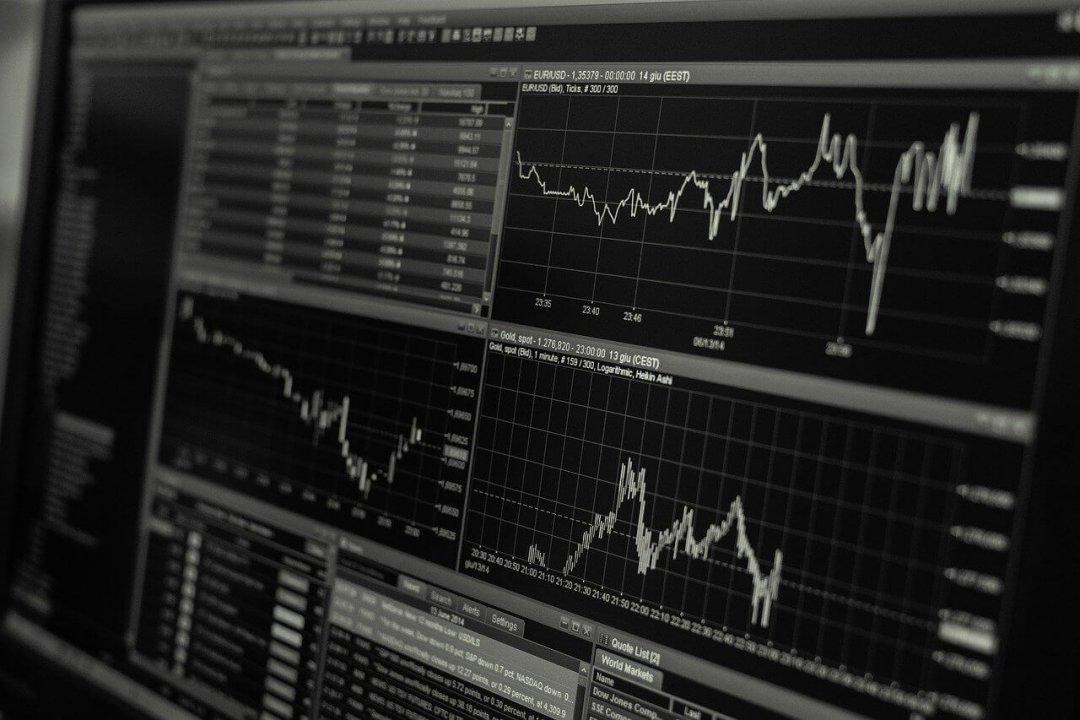
8. Listings
CEX: Coin listings are of course completely central at a CEX. However, this does not mean that there are no "shitcoins" on there: most central exchanges follow a "pay-to-play" principle, where only the money has to be right to be listed.
Non-Custodial: Here it is mixed again. There are non-custodial exchanges that follow the pay-to-play principle of a CEX, but there are also permissionless listening exchanges.
DEX: Listing on a real DEX is permissionless - this means that every coin and token can be listed without central authorization.
Listing on the DeFiChain DEX is permissionless.
9. Emergencies
CEX: What if something goes wrong? Centralized exchanges start with a so-called emergency stop - the exchange practically shuts down to protect itself (and the users).
Non-Custodial: Most Non-Custodial Exchanges also have so-called Emergency Breaks, so that certain coins, for example, can be completely blocked. Of course, there is not much decentralized about this.
DEX: A real DEX cannot be stopped - which of course has advantages and disadvantages. If, for example, a hack takes place, there is not much you can do about it.
By now it should be clear that the DeFiChain DEX will be fully decentralized in every meaning of the word, so there also won't be any kind of emergency stops.
10. Censorship

CEX: Since centralized exchanges are under state regulation and - well - centralized, censorship can and does take place without any problems.
Non-Custodial: Most Non-Custodial Exchanges are also subject to some form of regulation or can be centrally controlled, so that censorship is also easily possible here.
DEX: Just like Bitcoin, a real DEX is completely decentralized, independent and thus completely censorship-resistant.
The DeFiChain DEX is 100% censorship-resistant.
Advantages and Disadvantages of a truly Decentralized Exchange
As this article really shows, unlike most of the "decentralized" exchanges currently out there, the DeFiChain DEX will truly be a decentralized exchange.
That of course comes with its advantages and disadvantages.
We can all probably agree that how Private Keys, Geoblocking, Infrastructure, Code, Listings and Censorship are handled on a decentralized exchange are major advantages compared to a CEX or Non-Custodial Exchange.
Potential disadvantages are the Market Making and Emergency stops.
While the market making on a true DEX like DeFiChain is completely independent and can't be manipulated, it is also less efficient and more costly than a traditional CEX. The lack of emergency stops also means that in case of something like a hack (though becoming less and less probable by the very nature of being open source & possible to audit by anyone), lost funds can't be retrieved/prevented as easily as on a CEX.
All in all however, we think the upsides of a truly decentralized exchange way outweigh the downsides and are already very excited for the DeFiChain DEX coming in the near future!
If you have any questions about the upcoming DEX and don't want to miss out on news and updates, join our official Telegram group and follow DeFiChain on Twitter.
Links & Resources
Official Website: https://defichain.com
Whitepaper: https://www.defichain.io/white-paper/
Blockexplorer: http://explorer.defichain.io/
GitHub / Source Code: https://github.com/DeFiCh/ain
Twitter: https://twitter.com/defichain
Medium/Blog: https://medium.com/@defiblockchain
Facebook: https://www.facebook.com/defichain.foundation
YouTube: https://www.youtube.com/channel/UCL635AjCJe6gNOD7Awlv4ug/
LinkedIn: https://www.linkedin.com/company/defichain/
Reddit: https://reddit.com/r/defiblockchain
Telegram: https://t.me/defiblockchain
Current DFI price: https://coinmarketcap.com/currencies/defichain/
DFI facts: https://docs.google.com/document/d/1c-unHPPFKiAMSGRQu3A_RDO8JBplJonwQWT_6g5Lfcc/edit#
Media resources: https://www.defichain.io/media/
For media inquiries, please contact: partners@defichain.com
Work inquiries: We work with C++ and JavaScript and would like to have you on our team! Contact us on partners@defichain.com


